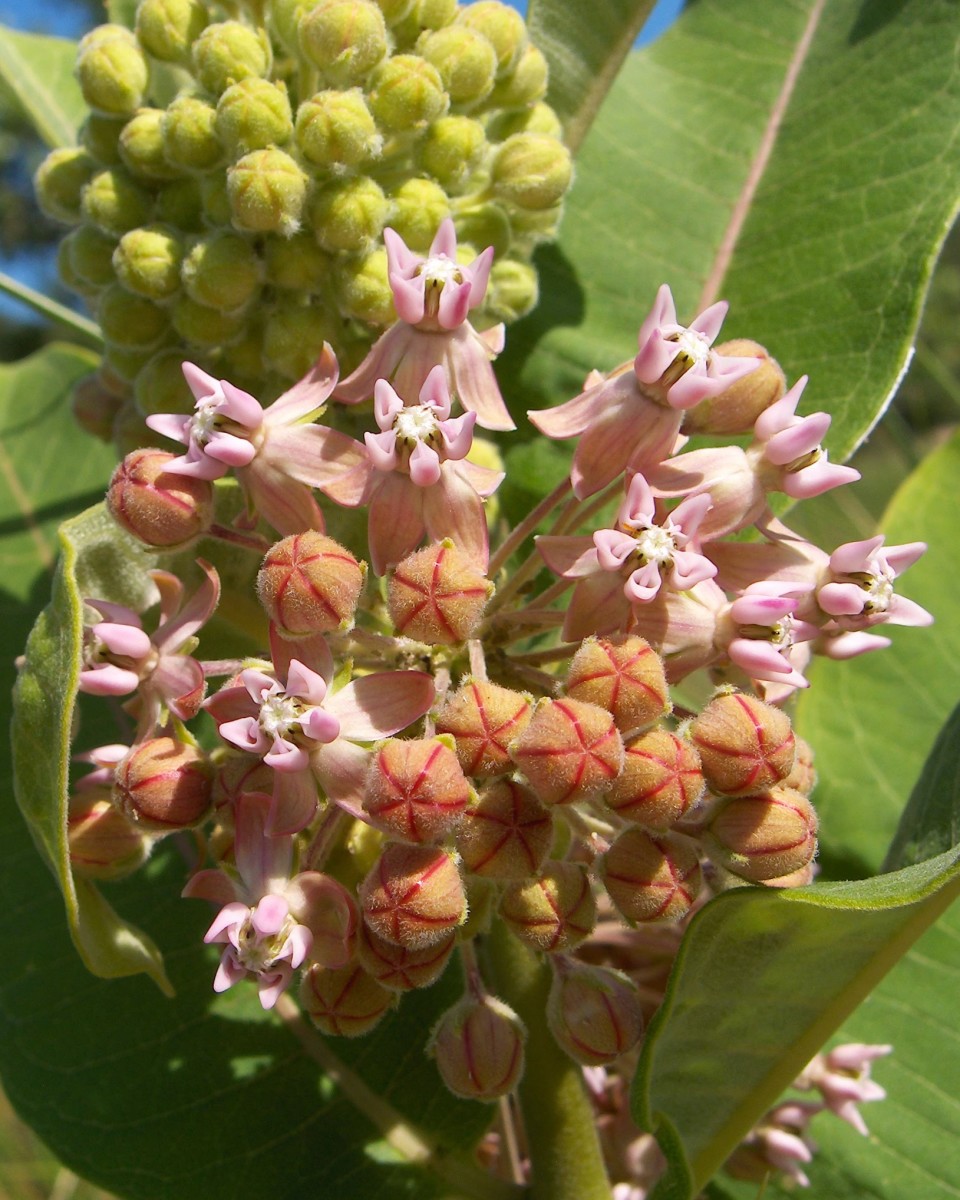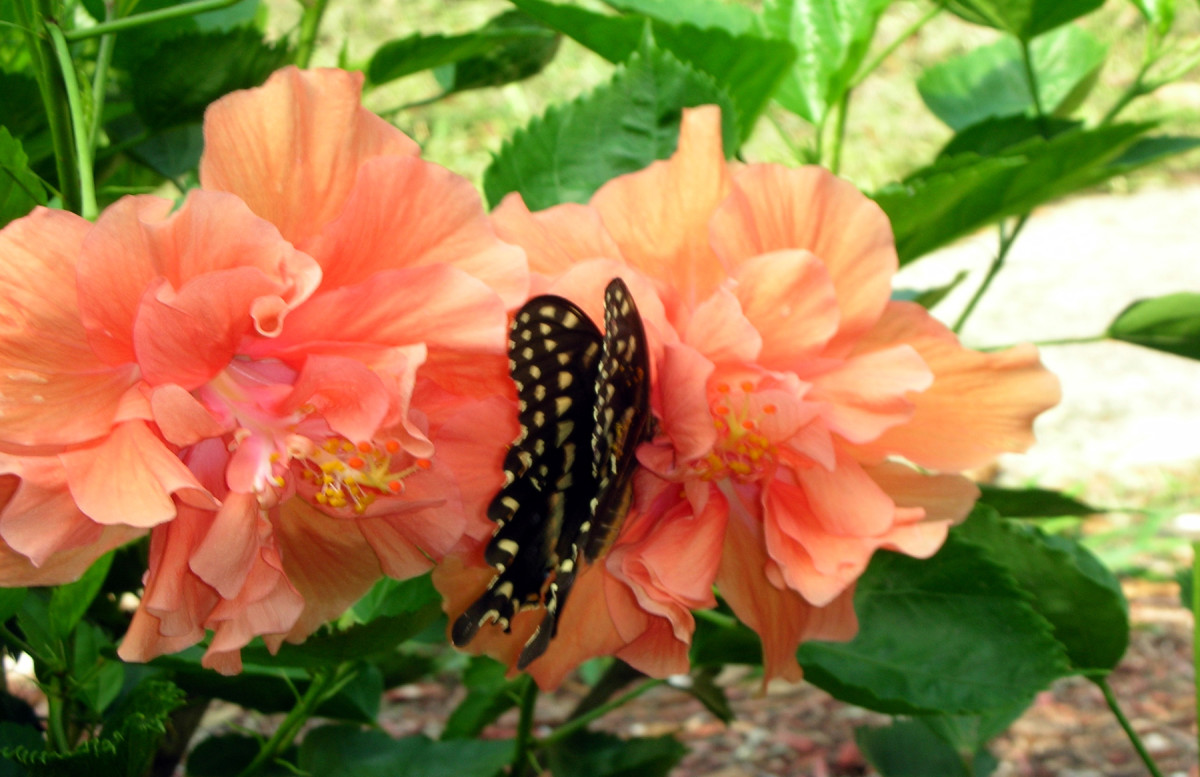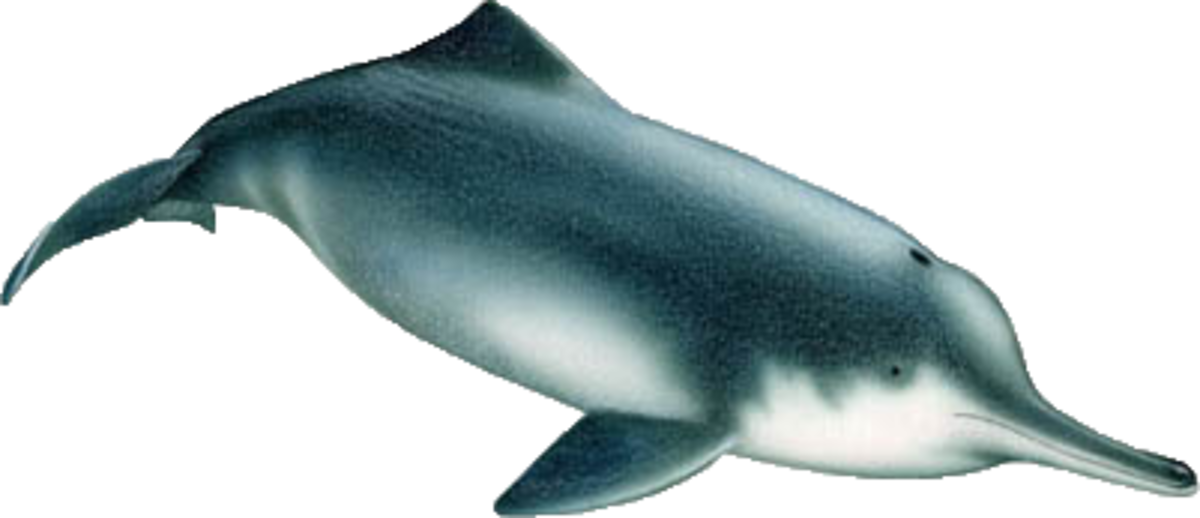- HubPages»
- Education and Science»
- Life Sciences»
- Endangered Species
Help Save the Monarch Butterfly - Plant Milkweed
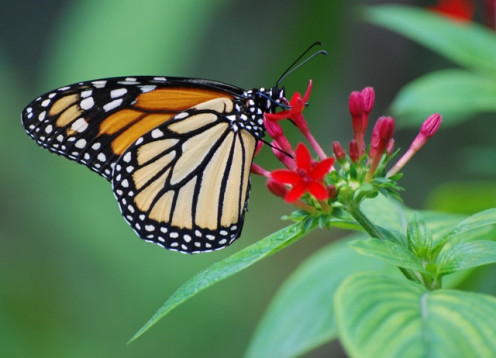
Butterflies are a vanishing miracle of nature.
Butterflies are less plentiful than they used to be and many species are now endangered. Specifically, the beautiful Monarch butterfly has drastically declined in numbers over the past decade. The Monarch butterfly relies entirely on Milkweed for survival, which is now at critical levels. Construction, development, freak weather patterns, and even general lawn care are destroying the butterflies’ habitat, and killing millions of helpless caterpillars and butterflies.
Butterflies, like all plants, animals and other insects, are important to the survival of all living things. For this reason alone the conservation of butterflies is becoming crucial. Without widespread participation, the Monarch butterfly will be a vanishing miracle of nature. With very little effort, you can help to preserve these most brilliant and fascinating creatures. (Continue reading to learn how you can receive FREE Butterfly Garden and Milkweed seeds.)
Choose your Milkweed wisely.
A little research and discernment will go a long way when choosing Milkweed plants. There are over 140 known species of Milkweeds. You will undoubtedly find several varieties that will thrive in your particular region—adding beauty, interest and activity to your yard or garden. When choosing plants, be conscientious of certain plant characteristics, such as ‘hardiness zone’ (will it survive in your area?), size at maturity, and sun and water requirements.
U.S. citizens can discover which ‘plant hardiness zone’ they are located in by checking the interactive USDA Plant Hardiness Zone Map.
Most all varieties of Milkweed produce many seedpods for future plantings, or for sharing. New plants are easily germinated (grown from seeds in pots), and then can be transplanted into the garden in spring. Or, seeds can be planted directly in the garden in the fall to 'overwinter', and will sprout in the spring. When in bloom, Milkweeds serve as a nectar plant that attracts butterflies, bees and hummingbirds.
Following are a few suggested varieties of Milkweed.
The Monarch needs your help! Plant Milkweed everywhere.
Milkweeds are the only host, or larval, plant that the female Monarch and Queen butterflies seek out to lay their eggs on along their migratory route. The caterpillars that hatch remain on the Milkweed plants and eat the leaves until they enter the pupal (cocoon) stage. Once the metamorphosis is complete, a new, magnificent butterfly emerges. When the Milkweed plants are in bloom, the adult butterflies are attracted to the nectar. As well, milkweed helps sustain bees and hummingbirds.
Milkweeds are now at critical levels along the Monarch’s 3000-mile long migration route (from southern Canada to central Mexico). Since the Monarch relies entirely on Milkweed for survival, they need your assistance now. You can help preserve this precious miracle of nature by planting Milkweed and asking your friends to do the same. If possible, we should have at least one Milkweed plant in every yard.
Helpful Hint:
Milkweeds occasionally attract aphids (tiny sap sucking insects). The plants are typically unharmed unless a major infestation occurs. Natural enemies of the aphid include lady beetles (ladybugs), lacewings and wrens. An effective home remedy is to spray the plant and the aphids with soapy water.
Mix together:
1 tablespoon liquid dish soap
1 tablespoon vegetable oil, or horticultural oil
1 gallon lukewarm water
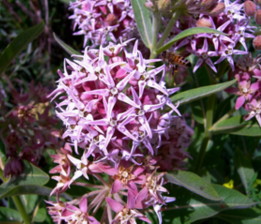
Northern - cool regions
Scientific Name: Asclepias speciosa
Common Name: Showy Milkweed
Hardiness Zones: 3a – 9b
Duration: perennial
Flower: fragrant – star-shaped, light pink to purple
Blooms: June – Sept.
Mature Size: 3-4 feet
Sun Requirement: full sun
Water Use: medium
NOTE: A popular, hardy northern variety known to survive some brutal northern winters. Considered one of the least toxic of the Milkweeds.

Southern - warm regions
Scientific Name: Asclepias curassavica
Common Name: Bloodflower, Tropical Milkweed, Southern Milkweed
Hardiness Zones: 8b – 11
Duration: perennial
Flower: fragrant – yellow-orange to red
Blooms: May – Oct.
Mature Size: 3-4 feet
Sun Requirement: full sun
Water Use: medium, low
NOTE: A popular tropical variety, and a favorite host, or larval, plant of Monarch butterflies. In cold winter areas, it grows as an annual (dying off). There's another version of A. curassavica known as 'Silky Gold' tropical Milkweed, which produces bright yellow to rich gold blooms.
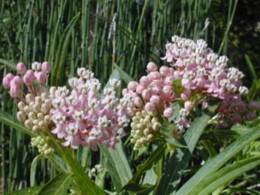
Wet Regions - swamp/marsh
Scientific Name: Asclepias incarnata
Common Name: Swamp Milkweed, Pink Milkweed
Hardiness Zones: 3a – 8b
Duration: perennial
Flower: fragrant – large, showy pink to purple
Blooms: June – Sept.
Mature Size: 3-5 feet
Sun Requirement: full sun, part shade
Water Use: high
NOTE: This showy Milkweed loves water. It’s one of few ornamental plants that thrives in extremely moist, wet, or muddy clay soil, especially near ponds, swamps or marshes. It is also a larval host plant of the Queen butterfly.
WARNING:
There is one variety of Milkweed that you may wish to avoid. Asclepias syriaca, also known as 'Common Milkweed,' 'Common Silkweed,' 'Silk Grass,' 'Virginia Silk,' and 'Silky Swallow Wort' is considered a highly noxious, freely self-sowing weed that tends to be extremely invasive. So, this variety may only be suitable for very large gardens or meadows that do not contain livestock or have any unforgiving neighbors nearby, and are located in areas where it has not been banned by the Department of Agriculture.
Milkweeds can be beneficial to nearby plants by repelling some pests, but are highly toxic if any part of the plant is ingested by animals or humans. Milkweed can cause mild dermatitis in some who come in direct contact with it. To be safe, consider wearing gloves whenever working with Milkweeds.
"Save the Monarch" FREE Seed Campaign
The Live Monarch Foundation (a National Heritage not-for-profit foundation) has launched a "Save the Monarch" seed campaign. The foundation will send you 15+ Butterfly Garden and Milkweed seeds, and growing instructions, for FREE. Or, if you prefer to contribute a $3.00 “Save the Monarch” donation, they will send 50 seeds per one dollar as a thank you. (These same seed packs sell all over the Internet for $2–$4 per 10 seeds.) Don’t need 150 seeds? Share them with your family, friends and neighbors. Seed requests and contributions can be mailed to the foundation, or securely submitted online through their web site.
Attract Butterflies with Your Own Butterfly Garden
It is very easy to attract butterflies to your own yard, no matter how small or urban. Plant host plants, such as Milkweeds. Include additional nectar plants, such as 'Pentas' (lanceolata spp.), "Coneflower' (Echinacea spp.) and Butterfly Bushes. Plant groups of similar colored flowers together. (Red seems to be their favorite color.) Be sure to provide plants that flower throughout the season. Butterflies enjoy basking in the sunshine near muddy puddles, and on sun-warmed rocks, bricks, and gravel. Provide these luxuries and you will have several very happy tenants in your garden.
By creating a Butterfly Garden, no matter how large or small, you will be helping to cultivate and sustain the entire life-cycle of the butterfly – butterfly generation after butterfly generation. With very little effort from you, the butterflies will reward you every year with their spectacle of a variety of living color that is unmatched by any other wildlife.
EARN MONEY WRITING
Do you enjoy writing - sharing your knowledge and experiences?
Why not get paid for it?
Join HubPages today and earn money writing!
© 2012 DC Ziese


